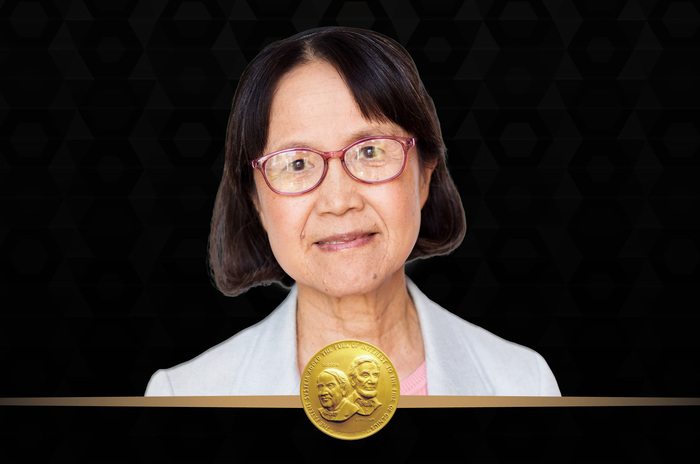First in Taiwan, Margaret Wu elected inductee of NIHF

Read the original article from the National Inventors Hall of Fame®
Industrial chemist Margaret Wu revolutionized the field of synthetic lubricants. Her work has changed how automobile and industrial lubricants are designed and synthesized, and resulted in products with better machine protection, improved energy efficiency and reduced waste oil.
Born and raised in Taiwan, Wu earned her bachelor of science degree in chemical engineering at the National Taipei University of Technology and her doctorate in physical organic chemistry at the University of Rochester. She joined Mobil in 1977, and by the mid-1980s she had begun developing a new class of polyalphaolefin (PAO), a type of synthetic base oil used in synthetic lubricants.
In an interview with the National Inventors Hall of Fame®, Wu explains what made her synthetic lubricants revolutionary. “The novelty of our product is that it has a very elegant chemical structure. It is put together in a very uniform and regular manner and has no extraneous undesirable side branches. If you look at the old products, they have small branches sticking out here and there. Because of the new chemical composition, the new molecules have significantly better lubricating properties.”
Wu’s series of new PAO synthetic base oil demonstrated superior lubricating properties with greater wear prevention and less friction in formulated products. This resulted in improved engine performance, oil life and fuel economy, as well as reduced engine wear and waste oil. As a dedicated lab chemist, she attributes her years working in laboratories as a critical component to her success and creativity. “When I am in a lab setting up reactions or cleaning up glassware, etc., ideas flow to me,” Wu said. “I really think it’s important for creativity, for progress and for my personal well-being, to work in a lab.”
Today, synthetic lubricant products based on Wu’s work are used in myriad applications, from passenger car engines to industrial machines such as wind turbines. Wu officially retired from ExxonMobil Research and Engineering Co. in 2009 as senior scientific adviser, the highest technical rank in the company, and the first woman so named. She continued as emerita and consultant until 2016. She holds over 100 U.S. patents.
Read the original article from the National Inventors Hall of Fame®
Industrial chemist Margaret Wu revolutionized the field of synthetic lubricants. Her work has changed how automobile and industrial lubricants are designed and synthesized, and resulted in products with better machine protection, improved energy efficiency and reduced waste oil.
Born and raised in Taiwan, Wu earned her bachelor of science degree in chemical engineering at the National Taipei University of Technology and her doctorate in physical organic chemistry at the University of Rochester. She joined Mobil in 1977, and by the mid-1980s she had begun developing a new class of polyalphaolefin (PAO), a type of synthetic base oil used in synthetic lubricants.
In an interview with the National Inventors Hall of Fame®, Wu explains what made her synthetic lubricants revolutionary. “The novelty of our product is that it has a very elegant chemical structure. It is put together in a very uniform and regular manner and has no extraneous undesirable side branches. If you look at the old products, they have small branches sticking out here and there. Because of the new chemical composition, the new molecules have significantly better lubricating properties.”
Wu’s series of new PAO synthetic base oil demonstrated superior lubricating properties with greater wear prevention and less friction in formulated products. This resulted in improved engine performance, oil life and fuel economy, as well as reduced engine wear and waste oil. As a dedicated lab chemist, she attributes her years working in laboratories as a critical component to her success and creativity. “When I am in a lab setting up reactions or cleaning up glassware, etc., ideas flow to me,” Wu said. “I really think it’s important for creativity, for progress and for my personal well-being, to work in a lab.”
Today, synthetic lubricant products based on Wu’s work are used in myriad applications, from passenger car engines to industrial machines such as wind turbines. Wu officially retired from ExxonMobil Research and Engineering Co. in 2009 as senior scientific adviser, the highest technical rank in the company, and the first woman so named. She continued as emerita and consultant until 2016. She holds over 100 U.S. patents.
